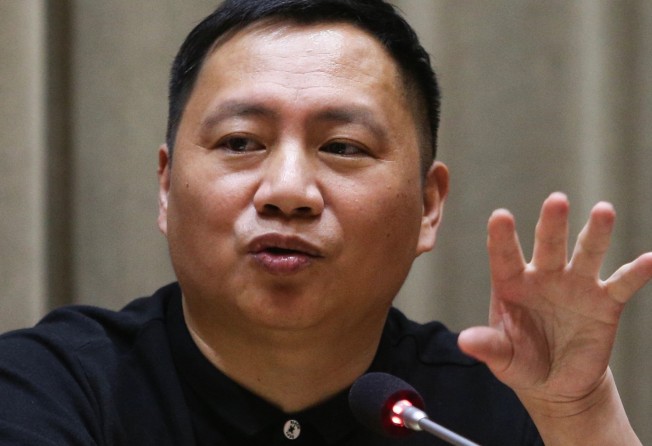June 4 key to China’s democratic future, former Tiananmen protest leader says
Public discontent on the mainland means the Communist Party will have to change at some point, Wang Dan says

The effects of the 1989 Tiananmen Square crackdown will continue to be felt on the mainland rather than fade into history, a prominent former student leader said on Sunday, 28 years after the protests were put down.
“Many people think it is already history ... but it continues to influence Chinese society today and will remain so in the future,” Wang Dan said, announcing his plans to return to the United States after eight years teaching in Taiwan.
“If any social crisis erupts in China, and the Chinese Communists hope to tackle the crisis by means of [democratic] transformation, they would not be able to skip over the June 4 crackdown. The incident has become a key to Chinese democratisation.”
Wang spent seven years in jail after the June 4 crackdown before moving to the US in 1998. Hundreds, perhaps more than 1,000, people were killed when troops suppressed the student protests.
He said that given the public discontent on the mainland it was inevitable that the Communist Party would undergo a democratic transformation but he did not know when or how it would happen.
Wang said President Xi Jinping was eager to stamp out corruption but this could not be achieved through political means.
He said he would continue to promote democracy on the mainland from Washington by setting up a think tank to research democratic change around the world and compile a series of books as references for future democratic movements on the mainland.
He would also hold a series of seminars for mainland students studying in the US to promote the spread of democracy; and interview all survivors of the crackdown and their relatives for publication. “I will also provide regular live internet broadcasts to promote Chinese democratisation,” he said. He planned to solicit small donations from the public to finance the projects.
Wang said he was moved by Taiwanese President Tsai Ing-wen’s statement yesterday that her government was willing to help Beijing promote democracy, but he thought it would be better for her to take more “concrete” action on the issue.
In offering 10 pieces of advice for Taiwan, Wang said many public opinion polls had indicated that many people on the island identified themselves as Taiwanese, but when asked whether they would risk their lives to fight for the island’s independence, they said no.
The former protest leader also said a “politics of violence” was a black spot on the island and it would only erode Taiwan’s democratic foundations.
Wang said that for a place praised for its democratic development, it was surprising for him to discover that most Taiwanese people did not care about what happened on the mainland, let alone help to transform it into a democracy.